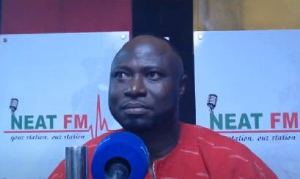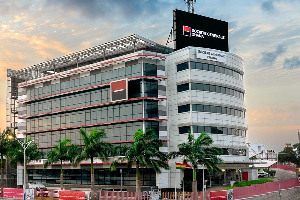Opinions of Saturday, 14 April 2012
Columnist: Sakyi, Kwesi Atta
Curriculum Reform of Secondary Education in Ghana – Part 3
– Way Forward from 2013
By Kwesi Atta Sakyi
7th April 2012
Proposed Curriculum Model for Ghanaian Secondary Schools from 2013
I read somewhere online that the President of the Ghana Association of Writers (GAW) at a Prize and Speech Giving Day held recently at Okuapeman Secondary School, called on the government to engage all stakeholders in charting a new way forward for secondary schools in Ghana. Mr. Kwasi Gyan-Apenteng could not have been alone in this his noble call for reform, which is long overdue. Mr. Apenteng posited that the old model of 5 years for O levels and 2 years sixth form A levels was salubrious for achieving excellent results.
In the pre-1987 old model, primary education lasted the same 6 years as in the current dispensation. In those days, kids continued to middle school, which lasted 4 years in the old educational model (6-4-5-2-3). However, within those 4 years, they would sit the Common Entrance Examination, which was conducted nation wide by the West African Examinations Council (WAEC). Kids would then proceed to secondary schools of their choice, depending upon their performance. I remember I sat mine in form 3 in 1965, and was admitted to the Government Secondary Technical School in Takoradi. Unfortunately, I could not proceed due to poverty. We could, therefore, surmise that in the old system, elementary education was an average of 8 to 10 years, plus 5 years at O level and 2 years at A level. A total of between 15 – 17 years of schooling before going on to university for a duration of 3 years. In the current system, we have 6 years primary, 3 years JHS and 4 years SHS in the model (6-3-4-4) making a total of 13 years before going on to university. Thus, the current system is short of the old system by about 4 years. Those of us who went to teacher training colleges took a longer route. We spent 10 years for elementary education, 4 years in teacher training college and we were bonded to teach for not less than 5 years. I completed my bond in 1975 and entered Legon. It is understood that in Germany, they let students mature before going to university. Why do we have to truncate or abridge our system to put learning pressure on our kids and teachers? It is also understood that the private schools operating in Ghana manage to get 90% of their kids into senior secondary schools while the public schools manage a paltry 10%. Is there equity or social justice here? Is our model of education an apartheid system? We are creating a social time bomb as the current educational model is selective, by rejecting children from poor homes into upper echelons of our system. As there are very few alternative systems, most of the JHS dropouts find themselves as taxi drivers, street vendors and some of them become craftsmen and craftswomen. Unfortunately, some end up on hard times and fall prey to crimes such as prostitution, armed robbery, drug trafficking, among others. It is true that many classic billionaires in the world today did not pass through the four walls of a university; examples are the late Steve Jobs of Apple in the USA, Sir Richard Branson of Virgin Group in the UK, among others. However, these come from advanced environments where their social and economic systems are very supportive and germane for budding entrepreneurs. We in Ghana have monumental challenges when accessing loans as we lack collateral security demanded by the banks, and we lack the presence of venture capitalists, technology theme parks, and business angels, among others. Thus, many entrepreneurial start-ups die prematurely. My argument here is that our current education system in Ghana is discriminating between the rich and the poor, and sooner rather than later, we may have a re-enactment of the Brown vs. Board of Education of the US (1954) scenario in Ghana. In 1954, in the US, there was the landmark Supreme Court ruling that it was illegal to have segregated schools on the basis of race or colour or ethnic origin. Ours in Ghana has become one school system for the rich and another for the majority poor. Once again, we should note that education is a merit good, which if left to market forces, it would be underprovided and under-consumed, so we need a lot of interventions on the part of government and policy makers. In countries such as Sweden, Singapore, India, Finland, Canada and other welfare states, they do not leave health care and education service delivery to market forces but rather the government and local authorities intervene to make these two cardinal merit goods accessible and affordable to their citizens via the tax system, which looks after every citizen from cradle to grave (welfare state). What prevents us from copying or replicating their example? It does not take only rich nations to do that as it is more a matter of setting our national priorities right. We have been told to apply public finance principles such as user- benefit approach, user fees, ability to pay, cost sharing, community schools modelled on partnership with external NGO support, among a host of other models. What we forget is that those external advisors do not care whether or not we create social apartheid in our country. I am of the opinion that we can make SHS education totally free, as proposed by the NPP presidential candidate, Nana Addo Dankwa Akuffo. There is a lot of wastage of government resources in our system. I concur with Nana Akuffo Addo that we are capable of providing free education up to the senior high school level. I know that supply-side economists such as Milton Friedman argue that there is nothing free in the world and market solutions should always be sought. We all know about the Great Depression of 1929 and the recent credit crunch in the USA of 2007 to 2009, which were caused by market failure in the free market system. Some economists such as Jeffrey Sachs, have condemned the free reign of the free market forces as the cause of the inequity in the world system, because of over-reliance on market forces. It is argued that the profit motive drives business as it drives people to be productive and hardworking. However, there are millions of people in the world who are hardworking but they have not become rich. Maybe, they are not smart enough to exploit market opportunities, or they are too principled to cut corners or bend the rules. Be that as it may, every nation has the duty to look after the welfare of its citizens and to preserve the public interest for the greatest good to the greatest number of citizens (summum bonum or pro bono publicio)(cf. John Stuart Mills). Thus, there is the need to democratise education and health service delivery to achieve equity and social justice. Of course, free education will mean increasing the tax burden for a good cause.
If we went to India and China, we would find that the secret behind their stupendous economic growth is their investment in Human capital, particularly education. They heavily subsidise education and make it accessible to all. No wonder, Chinese and Indian experts can be found in many global enterprises and research institutions. Besides, the Chinese and Indians have strong cultures which impose discipline and engender high levels of productivity. Their cultures also promote solidarity among themselves for collective survival. They have a culture of thrift, saving, hard work, sacrifice for the national good, and well established inheritance and succession traditions. They promote their cultures and support one another. Since education is a merit good, it should be accessible to all in Ghana for us to achieve the 2015 MDG targets of education for all, and no child left behind, as well as the better Ghana agenda. Education is the only vehicle for achieving vertical and horizontal social equity, as it is a vehicle for rapid upward social mobility. There is need to equalise opportunities for all, especially for the poor and marginalised. We need a catalyst to trigger osmosis in our educational system in Ghana to bring diffusion. We also need capillary action to engender cohesion and adhesion in the educational sector, by first achieving internal cohesion and second, adherence to the macroeconomic direction of the country. I think our educational outcomes have not been satisfactory to clients; neither has the internal processes been welcoming to internal market customers such as teachers, students and supervisors. Many parents and guardians struggle hard to get their children and wards into elite and top class senior secondary schools in Ghana. It is in the effort to help bridge the educational learning gap that I propose the changes to our current JHS and SHS systems. It is hoped that some of these proposals will help our educational system avoid its elitist stance, for it to become functional, utilitarian and synergistic.
Part 4 of these series will contain those proposals and recommendations for the way forward. The final Part 5 will explore some global perspectives. Stay tuned and stay blessed.












